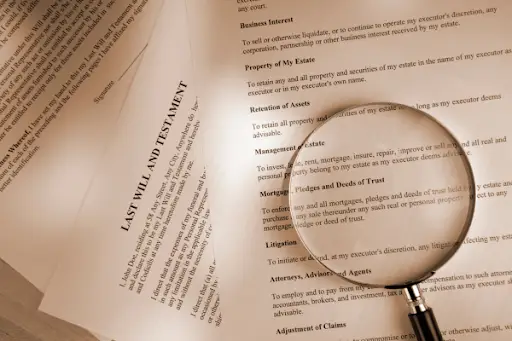This website uses cookies so that we can provide you with the best user experience possible. Cookie information is stored in your browser and performs functions such as recognising you when you return to our website and helping our team to understand which sections of the website you find most interesting and useful.
If you’re dealing with an estate dispute, you may need the help of an estate litigation lawyer. Estate litigation involves disputes over wills, trusts, and other legal matters related to the distribution of a deceased person’s assets.

What Is A Litigation Lawyer?
A litigation lawyer is a legal professional who specializes in resolving disputes through the legal system. Estate litigation lawyers are specifically trained to handle disputes related to wills, trusts, and estates. They work with clients to resolve disputes in a way that is fair and just, and they can represent clients in court if necessary.

What Is Estate Litigation In Canada?
Estate litigation in Canada involves disputes over the distribution of a deceased person’s assets. These disputes can arise when there is a disagreement over the terms of a will or trust, or when someone feels they have been unfairly excluded from an estate. Estate litigation lawyers help clients navigate the complexities of these disputes and work to achieve a fair resolution.

What Are the 5 Major Steps In The Estate Litigation Process?
The estate litigation process can be complex and time-consuming. Here are the five major steps:
- Investigation and evaluation of the dispute
- Pre-trial litigation
- Discovery process
- Trial
- Settlement or appeal

Do You Need A Lawyer To Settle An Estate Dispute?
In Canada, it is not always necessary to hire a lawyer to settle an estate dispute. However, it is recommended that you seek legal advice if you are dealing with a complex or contested estate. An estate litigation lawyer can help you navigate the legal system and ensure that your rights are protected.

Can You Sue an Estate?
Yes, it is possible to sue an estate in Canada. This can happen if there is a dispute over the terms of a will or trust, or if someone feels they have been unfairly excluded from an estate. An estate litigation lawyer can help you understand your legal rights and options.
Can The Executor Of A Will Take Everything?
No, the executor of a will cannot take everything. The executor has a duty to distribute the assets of the estate in accordance with the terms of the will or trust. If the executor fails to fulfill their duties, they can be held accountable by the courts.

Can An Executor Spend Money From The Estate?
Yes, an executor can spend money from the estate, but only for the benefit of the estate. They must keep accurate records of all transactions and ensure that they are acting in the best interests of the estate.

What Is An Example Of Executor Misconduct?
Executor misconduct can take many forms, including stealing from the estate, mismanaging the assets of the estate, and failing to fulfill their duties as executor. An example of executor misconduct might include an executor taking money from the estate for personal use, or failing to distribute the assets of the estate in accordance with the terms of the will.
If you’re dealing with an estate dispute in Vancouver, it’s important to seek the help of an experienced estate litigation lawyer like those at ATAC LAW. With their guidance and expertise, you can navigate the complexities of the legal system and work towards a fair and just resolution. Contact us today if you are in need of a real estate litigation lawyer or a will and estate lawyer.

